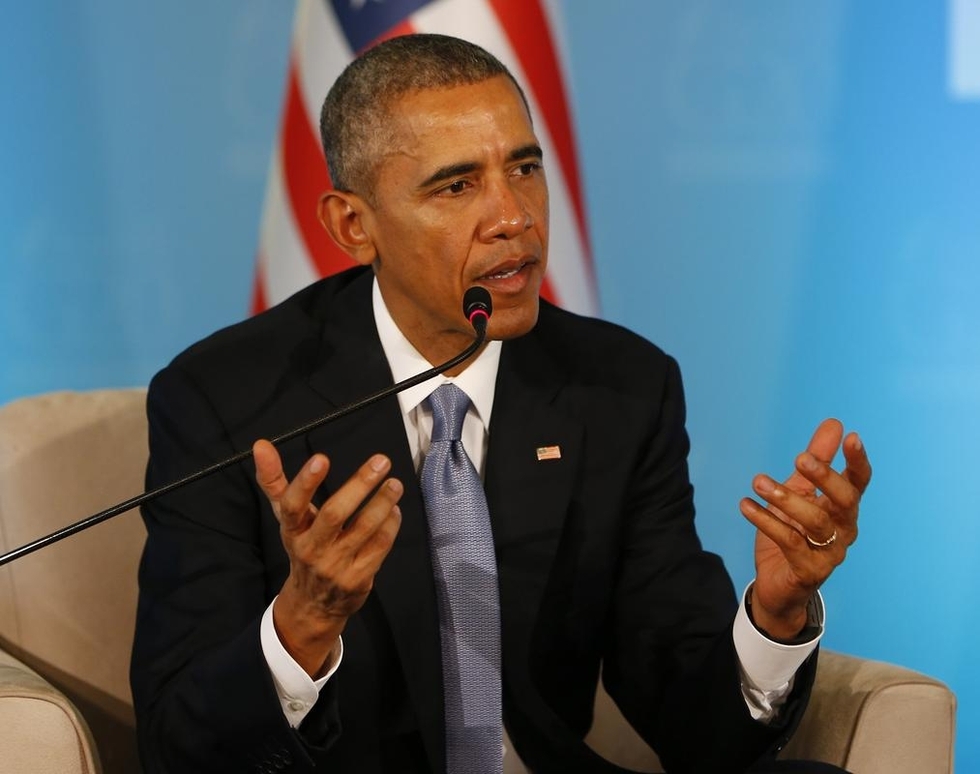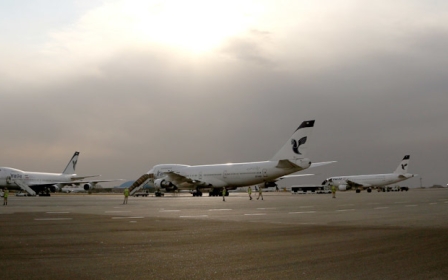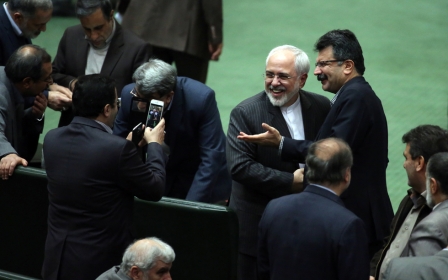Obama hails Iran breakthroughs as new sanctions announced

President Barack Obama on Sunday hailed a series of breakthroughs with Iran as vindication of his policy of engagement, as the US also announced new sanctions focused on Iran's ballistic missile programme.
“Today is a good day,” Obama said in a White House address to the nation after US prisoners were released from Tehran and key aspects of a nuclear deal were implemented.
"For decades, our differences meant our governments almost never spoke to each other. Ultimately that did not advance America's interests,” Obama said in comments aimed at a sceptical US public.
“We achieved this through diplomacy without resorting to another war in the Middle East."
His comments followed a momentous day that saw international inspectors confirm Iran had hobbled a nuclear programme that had been decades in the making, costly to build and a source of extreme national pride.
The United States responded by easing sanctions that have crippled Iran's economy and largely kept it from participating in the global economy.
The United States unfroze about $100bn of Iranian assets held abroad and settled a long-running international dispute that will see Iran get $1.7bn directly from Washington.
Simultaneously Washington and Tehran unveiled a prisoner swap deal that released high-profile American prisoners.
The detention of five Americans - including Washington Post journalist Jason Rezaian - had been particularly contentious in the United States, an uncomfortable echo of the 1979 hostage crisis that severed relations.
Obama hailed the release of the Americans, as three of them were on their way to Switzerland.
"When Americans are freed, that's something we can all celebrate," Obama said.
"I've met with some of their families. I've seen their anguish. How they ache for their sons and husbands. I gave these families my word. I made a vow that we would do everything to win the release of their loved ones, and we have been tireless."
Meanwhile, the US imposed new sanctions on Iranian companies and people linked to the country's ballistic missile programme.
The move prevents 11 individuals and entities allegedly involved in procurement for the missile programme from using the US banking system. It also sanctions "five Iranian individuals who have worked to procure ballistic missile components for Iran,” the Treasury Department said in a statement.
"Iran's ballistic missile programme poses a significant threat to regional and global security, and it will continue to be subject to international sanctions," said Acting Under-Secretary for Terrorism and Financial Intelligence Adam Szubin.
As opposed to the nuclear sanctions that were felt throughout Iranian society, the new sanctions are narrowly focused so that everyday Iranians will not be affected, the New York Times reported.
Unclear path ahead
Obama said that the United States would continue to have problems with the Iranian government's "destabilising activities” in the region, including support for militant groups.
That has been a primary focus for Republican presidential candidates who've been critical of Obama’s policy as the US heads towards elections in November.
Obama insisted the United States would "not waiver” in defence of its security, or that of its allies and partners.
But there was also an olive branch to Iran's young and growing population.
“I do want to speak directly to the Iranian people,” Obama said.
"Yours is a great civilisation with a vibrant culture that has so much to contribute to the world in commerce and science and arts.”
"For decades your government's threats and actions to destabilise the region has isolated Iran from much of the world. Now our governments are talking to each other.”
"Following the nuclear deal, you, especially young Iranians have the opportunity to build new ties with the world. We have a rare chance to pursue a new path.”
New MEE newsletter: Jerusalem Dispatch
Sign up to get the latest insights and analysis on Israel-Palestine, alongside Turkey Unpacked and other MEE newsletters
Middle East Eye delivers independent and unrivalled coverage and analysis of the Middle East, North Africa and beyond. To learn more about republishing this content and the associated fees, please fill out this form. More about MEE can be found here.




